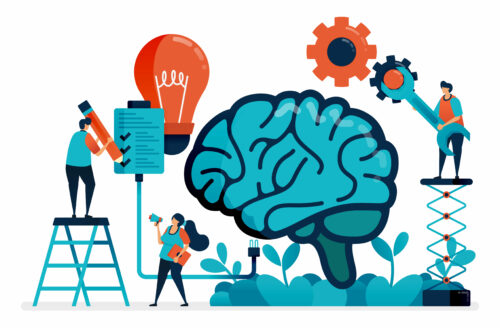Skills to Manage Your ADHD at Work

Managing ADHD in the Workplace: Effective ADHD Treatment and Skills for Success
Living with attention deficit hyperactivity disorder (ADHD) can present unique challenges in the workplace, but with the right ADHD treatment and skills, individuals can thrive professionally. In this blog post, we’ll explore practical strategies for managing ADHD at work, focusing on effective ADHD treatment options and essential ADHD skills that can boost productivity and enhance job satisfaction.
Understanding ADHD in the Workplace
ADHD is characterized by symptoms such as inattention, hyperactivity, and impulsivity. In a professional setting, these symptoms can manifest as difficulty staying focused on tasks, trouble organizing and prioritizing work, and challenges with time management. Recognizing these challenges is the first step toward implementing effective ADHD treatment and developing skills that can help manage these symptoms effectively.
ADHD Treatment: Finding the Right Approach
ADHD Medication
For many, medication is a cornerstone of ADHD treatment. Stimulants like amphetamines are commonly prescribed and can help improve focus and reduce impulsivity. Non-stimulant options, such as atomoxetine, can also be effective. It’s important to work with your healthcare provider at Focus Partners to find the right medication and dosage tailored to individual needs.
Therapy for ADHD
Behavioral therapy and cognitive-behavioral therapy (CBT) are valuable components of ADHD treatment. These therapies can help individuals develop coping strategies, improve organizational skills, and manage time effectively. Therapy provides a supportive environment to address specific workplace challenges and develop actionable solutions.
ADHD Coaching
ADHD coaching is a specialized form of support that focuses on setting and achieving goals. Coaches work with individuals to develop personalized strategies for managing ADHD symptoms and improving work performance. This might include creating structured routines, breaking tasks into manageable steps, and using tools to stay organized.
Lifestyle Changes
Incorporating healthy habits into daily life can complement ADHD treatment. Regular exercise, a balanced diet, and sufficient sleep are crucial for maintaining overall well-being and managing ADHD symptoms. These lifestyle changes can improve concentration and reduce the impact of ADHD in the workplace.
ADHD Skills: Strategies for Success
Time Management
One of the most significant challenges for individuals with ADHD is managing time effectively. Using tools such as planners, calendars, and time-tracking apps can help keep track of deadlines and appointments. Setting reminders and breaking tasks into smaller, manageable chunks can also make it easier to stay on top of responsibilities.
Organizational Tools
Implementing organizational systems can reduce clutter and streamline workflow. Digital tools like project management software and note-taking apps can assist with keeping tasks organized and accessible. Additionally, maintaining a tidy workspace and creating clear labels for documents can enhance efficiency.
Focus Techniques
Productivity techniques like the Pomodoro Technique, where work is broken into intervals with short breaks, can help maintain focus. Creating a distraction-free workspace and using noise-canceling headphones can also improve concentration. Identifying personal peak productivity times and scheduling demanding tasks during these periods can lead to better outcomes.
Communication
Similar to communication with friends and family, open communication with colleagues and supervisors is essential. Discussing ADHD-related challenges and seeking accommodations, such as flexible deadlines or a quiet workspace, can create a more supportive work environment. Building strong working relationships can also provide valuable feedback and support.
Stress Management
Managing stress is crucial for maintaining productivity and overall well-being. Practices such as mindfulness, meditation, and relaxation techniques can help reduce anxiety and improve focus. Incorporating short breaks and engaging in activities that promote relaxation can also help manage stress levels.
Work with Focus Partners to Manage your ADHD
Managing ADHD in the workplace involves a combination of effective ADHD treatment and the development of essential ADHD skills. By exploring various treatment options, incorporating lifestyle changes, and implementing practical strategies, individuals with ADHD can enhance their work performance and achieve professional success. Embracing these approaches can lead to a more productive, fulfilling, and balanced work experience.
At Focus Partners, we’re committed to providing effective and trustworthy treatment online for adults with ADHD. If you’re facing challenges with ADHD at work, book an appointment with our ADHD doctors today to develop a tailored plan that works for you. With the right support and strategies, managing ADHD can become a more manageable and empowering part of your professional journey.
Get started by taking our initial online ADHD assessment and find your focus now. Our team works with adults residing in Ohio, Illinois, Michigan and New York.




